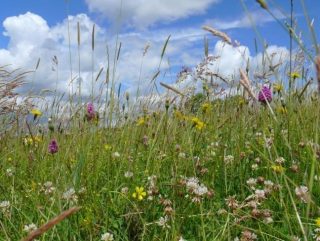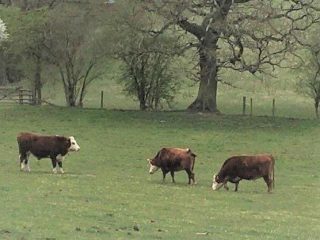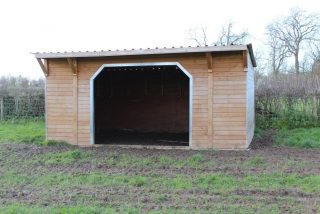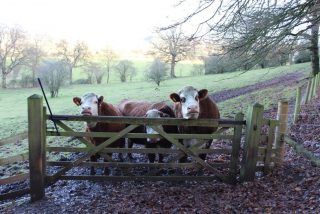Meet our Meadow Mowers
A rather special place here at Morton Hall is the aptly named ‘Magic Meadow’. It is probably the most isolated spot on the estate. Nestling near the bottom of the escarpment, it is surrounded on two sides by an ancient hazel coppice and to one side is an enchanting bluebell oak wood. However, the meadow’s true claim to fame is that it is home to a treasured colony of Common Spotted Orchids, Dactylorhiza fuchsia.
Having been surveyed by the Worcestershire Wildlife Trust almost 20 years ago, this meadow was described as a ‘very interesting and diverse area botanically’ and listed as a Site of Special Interest. There seems to be a unique soil composition at the bottom of our steep escarpment which provides an ideal habitat for meadow flowers. In addition to the Common spotted orchid, there are Adder’s tongue fern (Ophioglossum), Common knapweed (Centaurea nigra), Devils-bit scabious (Succisa pratensis), Meadowsweet (Filipendula ulmaria), Betony (Stachys officinalis) and Tormentil (Potentilla erecta).

Sadly, our wildflower meadows have been vanishing at an alarming rate due to the expansion of arable farming. There were once natural wildflower meadows to be found in every parish across the country but today only 2% of the meadows that existed in the 1930’s still remains.
As the caretakers of such a natural treasure we take the responsibility of ensuring that our ‘Magic Meadow’ flourishes very seriously. For wild meadow flowers to thrive, grass dominance needs to be kept in check and the fertility of the soil reduced. In times past, the meadow was probably cut for hay. This is no mean feat in a rather inaccessible sloping meadow, so following the recommendation of the Wildlife survey we enlisted our trusted cows Ross, Demelza and Elizabeth to do this important job for us.

The ‘Poldark’ crew keep the grass under control for periods of time before and after the flowering and seed-setting period, which runs from late April to early July. As a result, we can keep the meadow habitat in optimum condition.
When they are not on their important grazing mission on Magic Meadow Ross, Demelza and Elizabeth keep our tenant farmers sheep in check and take up residence in Trenwith House.

We have become very fond of our four-legged friends who are full or character and extremely inquisitive. They brighten up our walks with their curiosity and love the occasional head scratch too!

However, their most important task is to help ensure that while under our care, the Magic Meadow’s plant life flourishes and bring joy to all of us who are lucky enough to witness their annual summer display.
